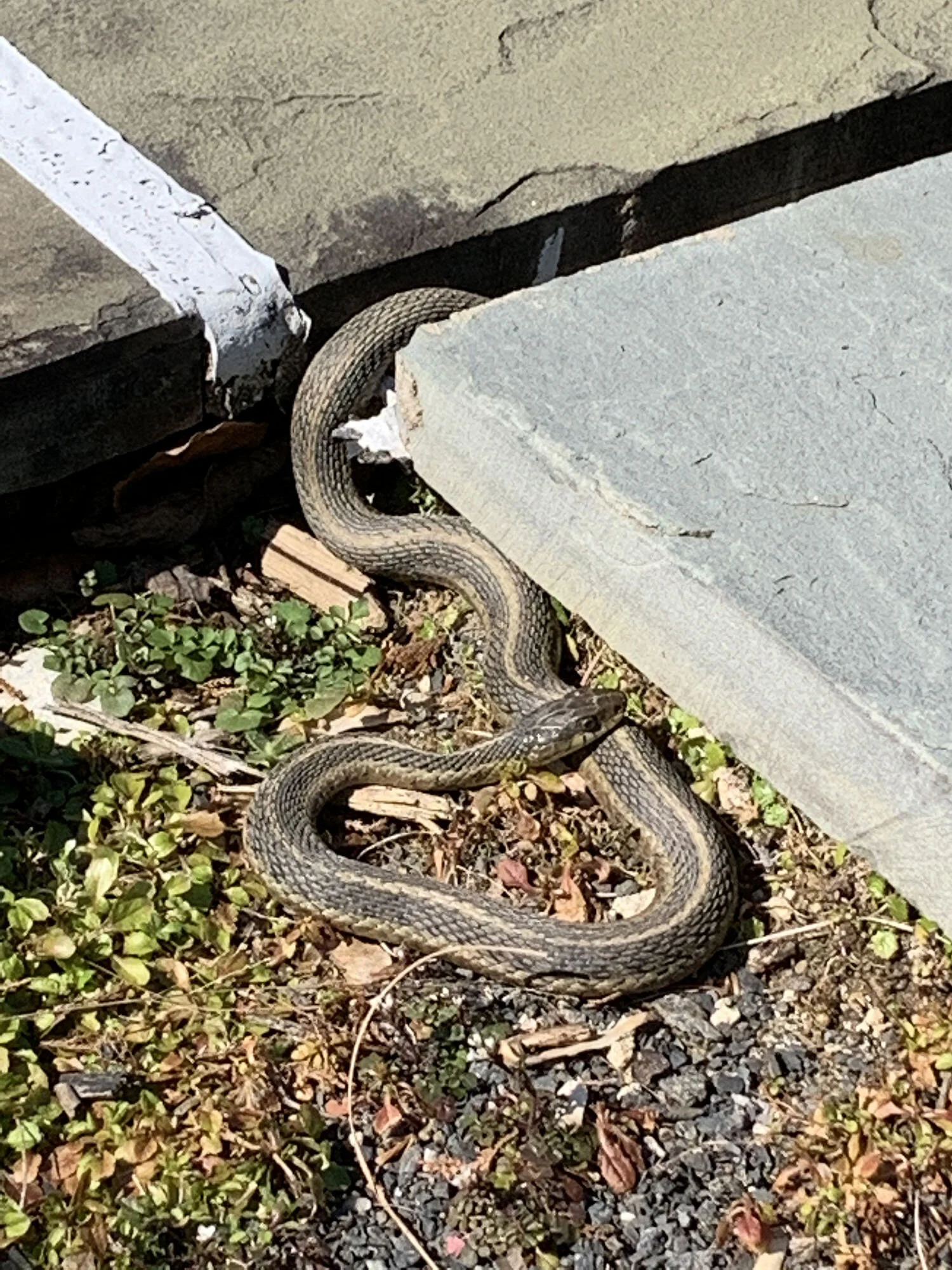A New Role for Hedgerow’s Penelope Reed
Penelope Reed and Zoran Kovcic as Fonsia Dorsey and Weller Martin in Donald Coburn’s “Gin Game.” Photo: Ashley Smith, Wide Eyed Studios
Editor’s note: This article was written to coincide with the opening of “Gin Game” at the Hedgerow Theatre — an opening that has been indefinitely postponed because of the COVID-19 outbreak. However, the actors are still rehearsing, and you can find performances of the play on this week’s Community Calendar of Imaginary Events.
When I walk into the rehearsal room at Hedgerow House on a recent Friday afternoon, director Peter DeLaurier is demonstrating a waltz. His back is ramrod straight as he guides an invisible partner across the floor. “It’s the carriage that sells the waltz,” he explains.
The cast — Penelope Reed and Zoran Kovcic — are listening closely.
Reed, Kovcic, and DeLaurier are halfway through rehearsals for Donald Coburn’s Pulitzer Prize-winning play “Gin Game,” planned to open at Hedgerow Theatre on Saturday, March 21. They have been doing this work long enough to know that rehearsal periods end all too soon.
Reed and Kovcic are learning to inhabit the story of two elderly residents of an old age home who play increasingly high-stakes games of gin rummy. Reed carries a big tan purse — a prop that contains her character’s most treasured possessions — and Kovcic grasps a cane. They sit across from each other at a battered card table in a long rehearsal room with windows looking out over woods, discussing the characters’ motivations.
There is no rest for the actors in this intense and intimate play. The two of them are always on stage, taking the characters from mood to mood: angry, teasing, elated, tender. Luckily, Reed and Kovcic know and trust each other. Not only have they worked at Hedgerow together for over twenty years, they are also married to each other. When they leave rehearsal at the end of the day, they’ll go home, have dinner, then get back to work.
DeLaurier asks them to start the scene again. Reed gets up from the table and walks away, so she can make her entrance. She looks annoyed and thumps down the big tan purse. “I’ve played all the cards I’m going to play,” she declares, in character now. But of course everyone, including her, knows that’s not the truth.
A Family Business
Penelope Reed and Zoran Kovcic in rehearsal at Hedgerow House in February. Photo: Rachel Pastan
This production of “Gin Game” marks an important step in the evolution of Rose Valley’s Hedgerow Theatre, which will celebrate its hundredth anniversary in 2023. In 2017, Reed, who had run the company since 1998, passed the reins to her son, Jared Reed, now artistic director. Penelope had taken over from her own mother, Janet Kelsey, who served for many years as actress, costume designer, business manager, board member, and more. “She did everything,” Penelope Reed says. Kelsey died in 2018.
Penelope, who won a Barrymore Lifetime Achievement Award in 2017, more or less grew up at Hedgerow. She studied acting under its founder, Jasper Deeter, who became a father figure to her after her own father — also named Jared Reed, and also an actor — died in 1967. Later, she worked at the Milwaukee Repertory Company, where she met Kovcic. She was a lead member of the McCarter Theatre in New Jersey and ran the drama department at the Lawrenceville School. Then in the wake of a 1985 fire that reduced Hedgerow to a shell, she moved back to help raise it from the ashes. The theater reopened in 1990.
Reed left Hedgerow in much stronger shape than she found it. What she has accomplished here has taken more than acting and directing skills. It has required a talent for fundraising as well. “After Penny’s first year,” Kovcic recalls, “she asked her mother, ‘When do you send out your annual giving letter?’” Kelsey didn’t know what she was talking about. She didn’t believe patrons would give money just because they were asked to, and she worried about the price of stamps. But, to her surprise, funds began to come in.
In addition to fundraising, Reed nurtured the theater’s relationship with the community. “That was my strength,” she says. She started children’s programs and brought theater to schools in Chester and Philadelphia — Poe in the fall and “Macbeth” in the winter. For a long time, the company staged as many as 13 productions a year. “Anything to survive,” Reed says. “It was a survival mentality.” Meanwhile she was raising money to repair the entrance, install heat, fix the theater up. There were constant challenges. Eventually, she brought in support from nonprofit organizations like the Wyncote Foundation. This enabled Hedgerow to increase pay for actors and staff, make the theater ADA compliant, and launch a fellows program to support young theater professionals. Kovcic, for his part, put in time improving the physical plant, designing sets, and keeping the audience laughing with his many comic roles.
Eventually, though, it was time to plan for succession. Reed’s son Jared had studied acting at Juilliard and performed all over the country. “I never dreamed he would end up being here,” Reed says. “But he wanted to run the theater.” She and Kovcic were thrilled when Jared and his family moved to Wallingford and the transition began. “I love the people he’s bringing in,” Reed says. “[And] his extreme focus on the play that goes on the stage.” Jared has cut the production schedule down to about five plays per year and is interspersing them with festivals, musical performances, and murder mystery parties. “We’re reaching different people. And we’re giving fuller focus to the main stage.”
Reunited Over a Card Table
“Gin Game” is Reed and Kovcic’s first performance together in two years. They are palpably excited about working with DeLaurier and about the quality of Coburn’s play, which makes every word count. They are also pleased to be presenting work about a subject they care about: “the condition, in 1975, of people who didn’t have anything.” The play is also about the tragedy of two people who might have been happy together if they didn’t trigger one another’s anxieties and obsessions.
Back in the rehearsal room, Reed is trying to decide what to do with her purse. “It says here you’re supposed to have your purse in your lap,” says a young guy — one of the fellows — holding the blocking book. But Reed decides to try it differently. She and Kovcic spar with each other, goad each other. “The only thing you care about in the world is that damn gin game,” Reed says.
“We’ll play one hand,” Kovcic says. “And you play to win, goddamn it!” He deals the cards: “One, one. Two, two. Three, three.” He makes a mistake, stops, tries again. They say their lines, fumble them, get cued, and say them again.
At the end of the rehearsal, everyone seems pleased. “We’re in a good place,” DeLaurier says. He has to get back to Philadelphia soon, where he’s performing in Lorene Carey’s “My General Tubman” at the Arden Theatre, but he’ll be back on Monday.
Kovcic puts away his cane. The technical crew assembles for a production meeting. Reed has a date to go wig shopping with Susan Wefel, an actress with the company for nearly forty years, who’s in charge of costumes for the show. As always, the budget is limited, so they’re heading for a place Wefel knows on MacDade Boulevard where the prices are good.
“I’m exhausted,” Reed says, picking up the tan handbag and getting ready to go. “It’s exhausting, because it’s such a great play, you know?”





